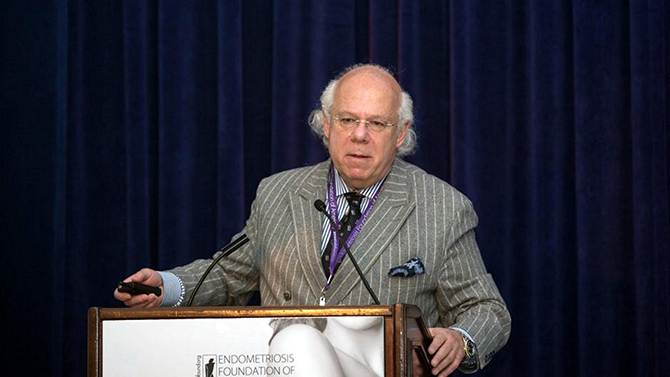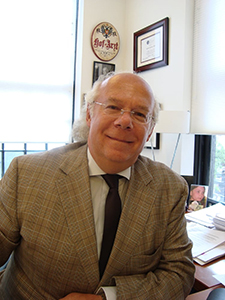DR. NORBERT GLEICHER
The Go-To IVF Specialist

By Bailey Beckett
Today, women are increasingly getting pregnant through in vitro fertilization with their own eggs—even at the age of 48. This according to the foremost IVF practitioner, Dr. Norbert Gleicher, MD, FACOG, FACS, and President/Medical Director/Chief Scientist of the Center for Human Reproduction (CHR). Founded by Gleicher 40 years ago, it has become one of the top fertility clinics in the world with a focus on patients who have previously failed treatments elsewhere.
Gleicher has been a leader in the field since 1981 when he began seeing in vitro fertilization research gaining traction across Europe. Then Chairman of Obstetrics and Gynecology at Mount Sinai Hospital in Chicago, he flew to Paris to study the trend and came back on a mission to grow the field in the U.S. “It had dramatically changed from what we considered a hocus-pocus practice into a very scientific field,” Gleicher says. “It was exciting, and I saw an opportunity to contribute.”
A PIONEER IN THE FIELD
Boy did he ever. A native of Austria, where he received his medical training, Gleicher formed CHR in 1990 and has established it as a pioneer in fertility treatments. Working with colleagues David H. Barad, MD, MS, and Vitaly A. Kushnir, MD, CHR was the first clinic to perform vaginal egg retrieval, as well as tubal catheterization to repair obstructed fallopian tubes. Additionally, they helped introduce a hormone therapy, DHEA, for women with poor ovarian reserves to help produce estrogen and increase egg quality. The focus of CHR is relatively simple: impregnating older women with their own eggs. “The difference is not only the age,” Gleicher says, “but the viability of the ovarian reserves: how many eggs they have left. Those are the most predictive factors. Most women are pushed into using egg donors after 42. They are frequently told they have no chance, but we feel it’s too early.”
This is true especially after news last year of a 48-year-old woman impregnated with her eggs successfully—the oldest on record. “It is very symbolic for the progress we have made,” Gleicher says. “I’ve been working in IVF from the very beginning, and I remember the days when we didn’t accept women older than 39. This sends a message to many other IVF programs. The fact that we have a pregnancy at 48 years old means there’s a better chance for those who are in their forties.”

THE FUTURE OF IVF
Most exciting to Gleicher is what is ahead. “We are on the verge of breakthroughs that will erratically change how we practice IVF,” he says. “We are going to be able to mature eggs early in the lab, which will give a woman enough eggs for the rest of her life, as well as make new eggs from stem cells, which has already been done in mice. That and even more will revolutionize our practice.”
Those advancements will help women who have chosen to wait to have children, which is often blamed on focusing on careers instead. There is truth to that, Gleicher says, but another factor is eligibility. “A trend we are seeing is that often professional women do not find husbands,” Gleicher says. “As they become successful, it becomes harder and harder.” Theories of why could fill textbooks (professional envy? Competition?) Fortunately, when that time does come, starting a family has become easier. We can almost always find enough sperm,” Gleicher says. “If we can make new eggs, just imagine what that would mean.”
For more information on the Center for Human Reproduction, visit centerforhumanreprod.com.




